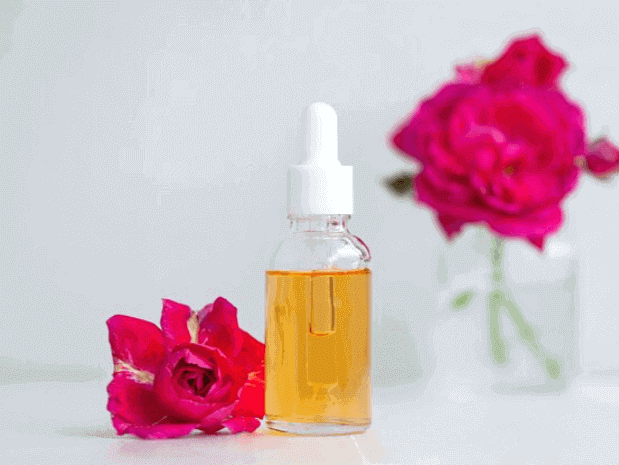
Betaine in Skin Care: What Is It and What Are Its Benefits?
Betaine has emerged as a promising ingredient in skincare formulations, offering a spectrum of benefits. It’s a compound that originates from various sources, predominantly sugar beets, and has gained attention for its efficacy in skincare routines. Let’s go through a guide to effectiveness of betaine in skin care.
Introduction to Betaine
Betaine, also known as trimethylglycine, is a naturally occurring compound found in various plants and microorganisms. In skincare, betaine plays a crucial role due to its hydrating properties and ability to support the skin’s natural barrier.
Betaine’s Role in Skincare
Moisturizing Properties
One of the standout features of betaine is its exceptional moisturizing ability. It helps retain water within the skin cells, providing a plump and hydrated appearance.
Anti-aging Benefits
Betaine showcases anti-aging properties by minimizing fine lines and wrinkles. Its antioxidant characteristics aid in combating free radicals, thus promoting youthful-looking skin.
Types of Betaine Used in Skincare
Cocamidopropyl Betaine
Derived from coconut oil, cocamidopropyl betaine is a popular cleansing agent and mild surfactant used in skincare products for its gentle cleansing abilities.
Betaine Salicylate
This derivative of betaine and salicylic acid offers exfoliating and anti-inflammatory effects, making it suitable for acne-prone skin.
Benefits of Betaine in Skin care
- Hydration Booster: Betaine locks in moisture, ensuring supple skin cells.
- Barrier Strengthener: Reinforces against stressors, maintaining resilience and preventing moisture loss.
- Anti-inflammatory Support: Soothes irritated skin, reducing redness and promoting balance.
- Antioxidant Defender: Fights free radicals, reducing fine lines and supporting rejuvenation.
- pH Balancer: Maintains optimal skin pH levels for healthy function.
- Sebum Regulator: Controls oiliness without compromising moisture balance.
- Collagen Booster: Enhances elasticity and reduces sagging.
- Irritation Soother: Provides relief for sensitive skin without exacerbating discomfort.
- Cell Renewal Stimulator: Supports healthy skin turnover for a radiant complexion.
- Redness Reducer: Diminishes blotchiness, improving skin tone.
- UV Damage Defender: Offers protection against sun-induced skin harm.
- Moisture Retention Enhancer: Prolongs hydration for a youthful appearance.
- Soothing Sensation: Calms skin, reducing sensitivity.
- Elasticity Enhancer: Maintains supple, firm skin, reducing fine lines’ appearance.
- Reduces Transepidermal Water Loss (TEWL): Preserves hydration, preventing dryness.
- Blemish Diminisher: Reduces imperfections, promoting clearer skin.
- Texture Refiner: Smoothes rough areas for a refined complexion.
- Comfort Provider: Nourishes sensitive skin without irritation.
- Radiance Booster: Enhances skin glow and vibrancy.
- Skin Recovery Aid: Supports repair processes, maintaining skin health.
How Betaine Works on Different Skin Types
Betaine’s adaptability to diverse skin types is one of its remarkable attributes.
Suitable for Sensitive Skin
For individuals with sensitive skin prone to reactivity, finding suitable skincare can be challenging. Betaine, however, emerges as a gentle yet effective ingredient. Its hydrating properties play a crucial role in soothing and calming irritated skin without causing further sensitivity. Unlike some harsher compounds often found in skincare, betaine’s mild nature makes it a suitable choice for those prone to redness, itching, or other forms of skin irritation.
Benefits for Dry and Oily Skin
Betaine’s versatility extends to addressing the concerns of both dry and oily skin types.
- Dry Skin: Betaine acts as a moisture magnet for dry skin. Its ability to draw water into the skin cells and lock it in helps alleviate dryness and flakiness. By maintaining moisture levels, betaine aids in restoring the skin’s suppleness and preventing further dehydration.
- Oily Skin: Often, oily skin poses challenges related to excess sebum production, leading to a greasy appearance. Betaine, however, works to regulate sebum production without promoting excess oiliness. By striking a balance, it helps control shine and maintain a more consistent skin texture, contributing to a healthier complexion without stripping away essential moisture.
Incorporating Betaine into Skincare Routine
When integrating betaine into your skincare regimen, consider products that harness its beneficial properties. Opting for serums, moisturizers, or cleansers containing betaine can notably enhance your routine.
Potential Side Effects and Considerations
While betaine is widely regarded as safe, it’s essential to acknowledge the potential for allergic reactions in some individuals. To mitigate risks, conducting a patch test before using new betaine-infused products is advisable.
Scientific Studies and Evidence Supporting Betaine in Skincare
Numerous scientific studies underscore betaine’s effectiveness in skincare. These studies consistently highlight its positive impact on skin hydration, fortifying the skin’s barrier function, and exhibiting anti-aging effects.
Comparative Analysis: Betaine vs. Other Skincare Ingredients
In a comparative analysis, betaine emerges as a standout ingredient due to its multifaceted benefits. It often matches or surpasses the efficacy of well-known skincare components like hyaluronic acid or glycerin.
Betaine in Natural and Organic Skincare Products
The natural origin of betaine makes it a highly sought-after component in sustainable and organic skincare formulations. Its eco-friendly attributes align with the growing demand for environmentally conscious beauty products.
The Future of Betaine in Skin care Industry
The skincare industry continues to delve into the potential of betaine, paving the way for innovative formulations and advancements. Ongoing research and development aim to further unlock its diverse applications and benefits.
Expert Recommendations and Insights
Dermatologists and skincare experts unequivocally endorse the integration of betaine in skin care routines. They advocate for its inclusion based on its proven hydrating properties and ability to soothe and nourish the skin, supporting its overall health and vitality.
FAQs About Betaine in Skin care
- Is betaine suitable for all skin types?
- Yes, betaine is generally well-tolerated by most skin types, including sensitive, dry, and oily skin.
- Can betaine cause skin irritation?
- It’s rare, but some individuals may experience mild irritation or allergic reactions. Patch-testing new products is recommended.
- What concentration of betaine is effective in skincare products?
- Effective concentrations vary, but products typically contain betaine in concentrations ranging from 1% to 5%.
- Are there any notable interactions of betaine with other skincare ingredients?
- Betaine usually plays well with other ingredients. However, it’s advisable to check for potential contraindications, especially when using with acids or exfoliants.
- Does betaine offer long-term benefits for skin health?
- Yes, consistent use of betaine in skincare can contribute to improved skin hydration, barrier function, and overall skin health over time.





